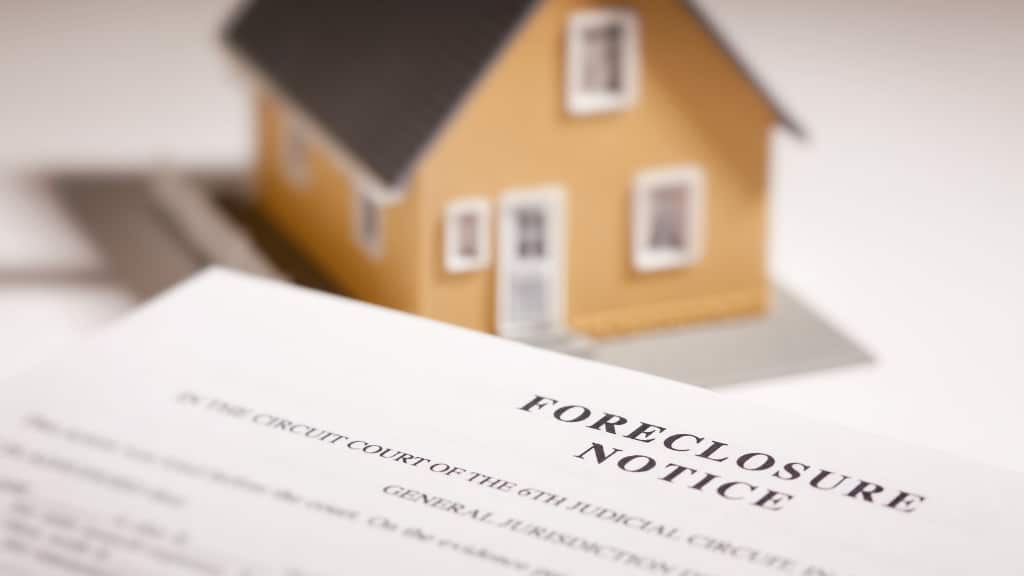
Estate | Commercial | Real Estate
Big Firm Credentials,
Small Firm Attention
An estate, commercial and real estate law firm
Contact
Foreclosure is not the only option for homeowners struggling with mortgage debt in New Jersey. Loan modifications, short sales, and deed-in-lieu agreements offer alternatives that can help borrowers avoid losing their homes. Exploring these options and understanding how the entire residential real estate process works can provide a path toward financial recovery without the long-term consequences of foreclosure.
If you are struggling to keep up with mortgage payments, you may have options to avoid foreclosure and protect your home. Under New Jersey Statutes § 2A:50-56, lenders must provide homeowners with a foreclosure notice at least 30 days before filing a complaint. This gives you time to explore loan modifications, repayment plans, or other foreclosure alternatives before legal action begins.
Many lenders are willing to work with homeowners to prevent foreclosure. Depending on your financial situation, you may be able to negotiate a modified payment plan, sell your home through a short sale, or transfer ownership to avoid foreclosure on your record. Exploring these options early can help you regain financial stability and minimize long-term credit damage.
A loan modification allows you to adjust the terms of your mortgage to make payments more manageable. This may include lowering your interest rate, extending your loan term, or reducing your monthly payments. Lenders may also offer temporary repayment plans that allow you to catch up on missed payments over time.
To qualify for a loan modification, you must typically prove financial hardship and demonstrate that you can afford the adjusted payments. Many homeowners apply for state and federal foreclosure prevention programs, such as:
If you are experiencing short-term financial hardship, you may qualify for a forbearance agreement, which temporarily reduces or suspends mortgage payments. This option is often available for homeowners recovering from job loss, medical expenses, or unexpected emergencies.
Forbearance does not erase missed payments but allows you to delay foreclosure proceedings while you regain financial stability. Once the forbearance period ends, you must resume payments or enter a repayment plan to catch up.
If keeping your home is no longer financially viable, a short sale or deed-in-lieu of foreclosure may allow you to resolve your mortgage debt without going through a formal foreclosure process.
These options can help minimize the damage to your credit, reduce financial liabilities, and allow for a smoother transition. Choosing the right option depends on your financial situation, your lender’s willingness to cooperate, and whether you want to sell the home or transfer ownership directly.
A short sale allows you to sell your home for less than the remaining mortgage balance, but it requires lender approval before moving forward. If the lender agrees, the remaining balance may be waived or reduced, helping you eliminate a portion of your debt.
Short sales can be complex and time-consuming, often requiring documentation of financial hardship and negotiations with the lender. However, completing a short sale prevents foreclosure from appearing on your credit report, which can make it easier to qualify for new housing or loans in the future.
If selling the home through a short sale is not possible or practical, you may be able to voluntarily transfer ownership to the lender through a deed-in-lieu of foreclosure. This option releases you from the mortgage obligation and helps avoid the stress and legal repercussions of foreclosure proceedings.
Lenders may offer relocation assistance or additional incentives to homeowners willing to complete a deed-in-lieu, making it a viable alternative for those who want to move on quickly. While this method still impacts your credit, it is generally seen as less damaging than foreclosure and may allow for a faster financial recovery.
One major consideration for short sales and deeds-in-lieu is the potential tax implications of mortgage debt forgiveness. If your lender forgives a portion of your mortgage debt, the IRS may consider it taxable income, which means you could owe taxes on the forgiven amount.
However, under certain circumstances, such as insolvency or the Mortgage Forgiveness Debt Relief Act, you may be able to exclude forgiven debt from taxable income. It is important to consult with a tax professional or financial advisor before finalizing a short sale or deed-in-lieu to fully understand the potential tax obligations and explore ways to minimize them.
Foreclosure is not the only option for homeowners struggling with mortgage payments. Loan modifications, short sales, and other foreclosure alternatives may provide a path forward without losing your home. A New Jersey foreclosure alternatives attorney with KingBarnes can help you explore every available option. Contact us today to discuss how we can assist you in securing a more stable financial future.